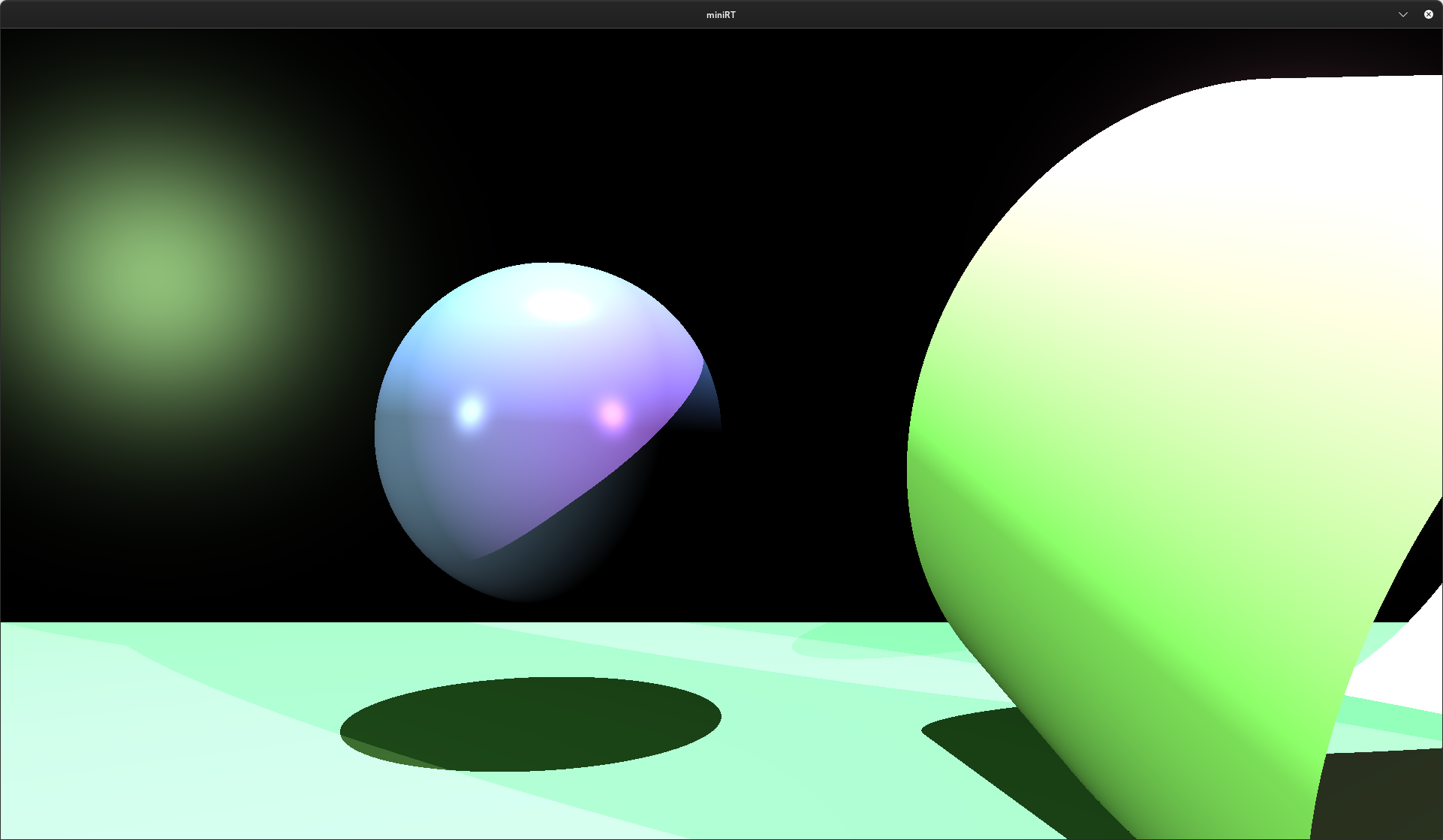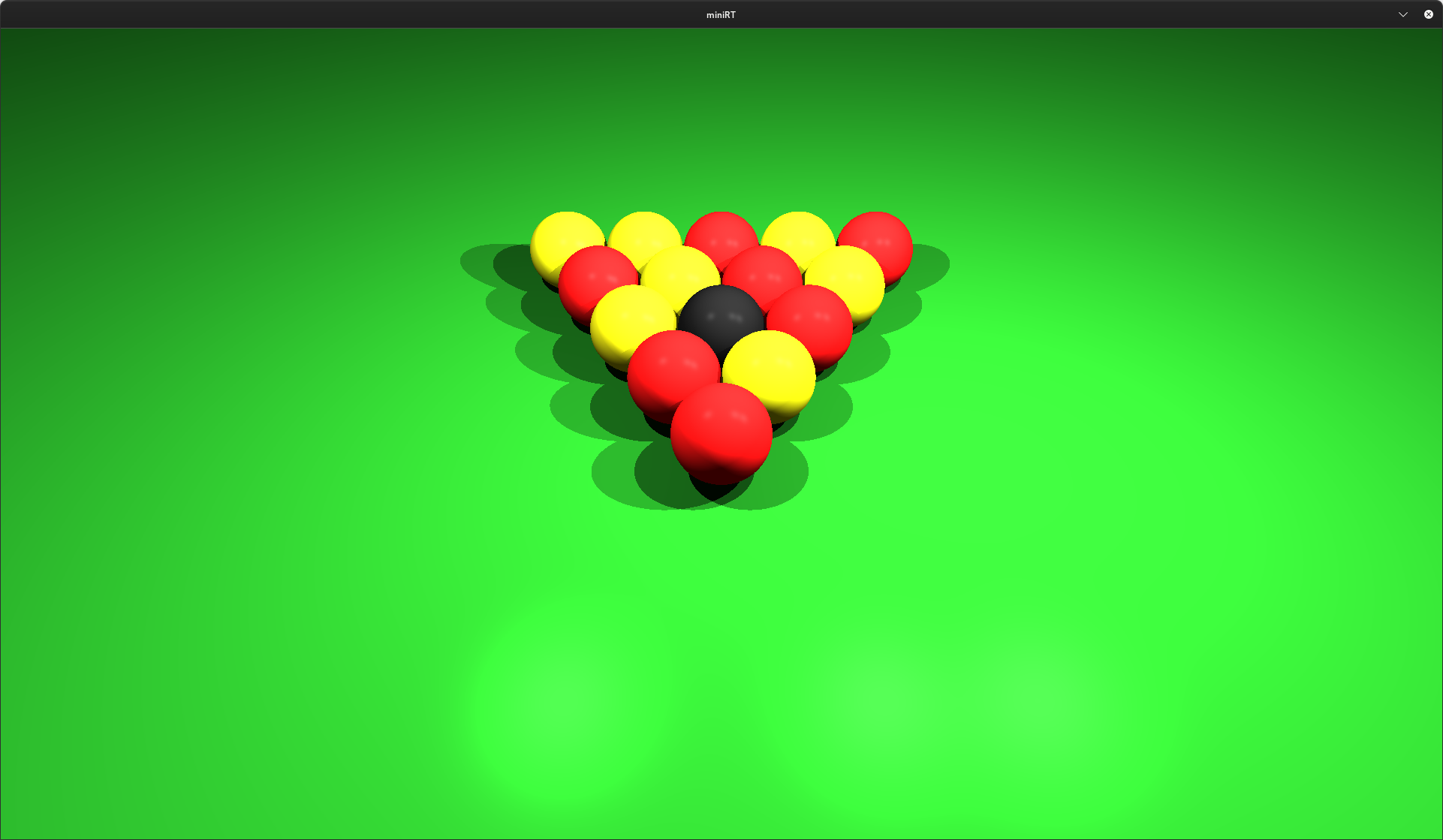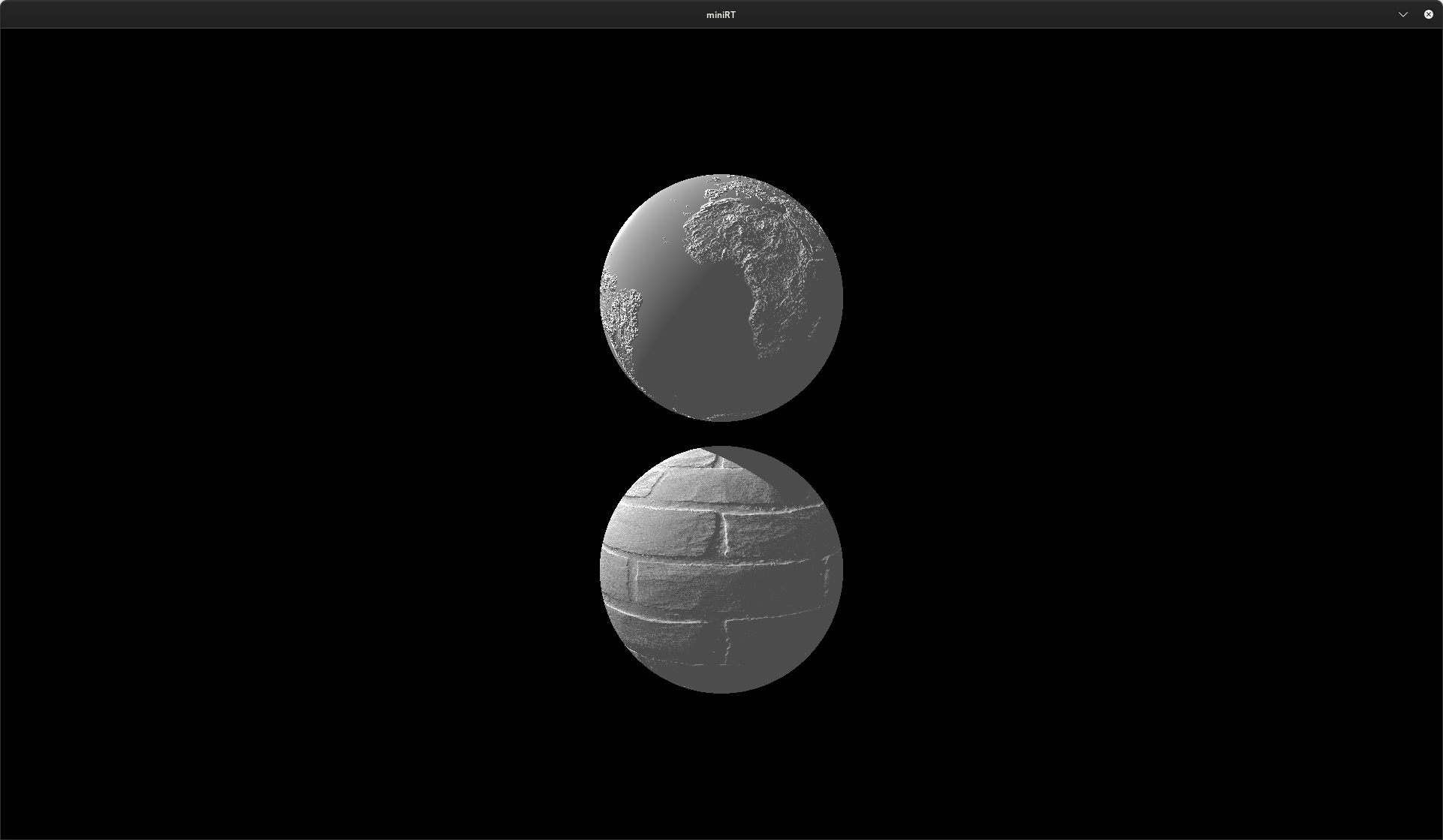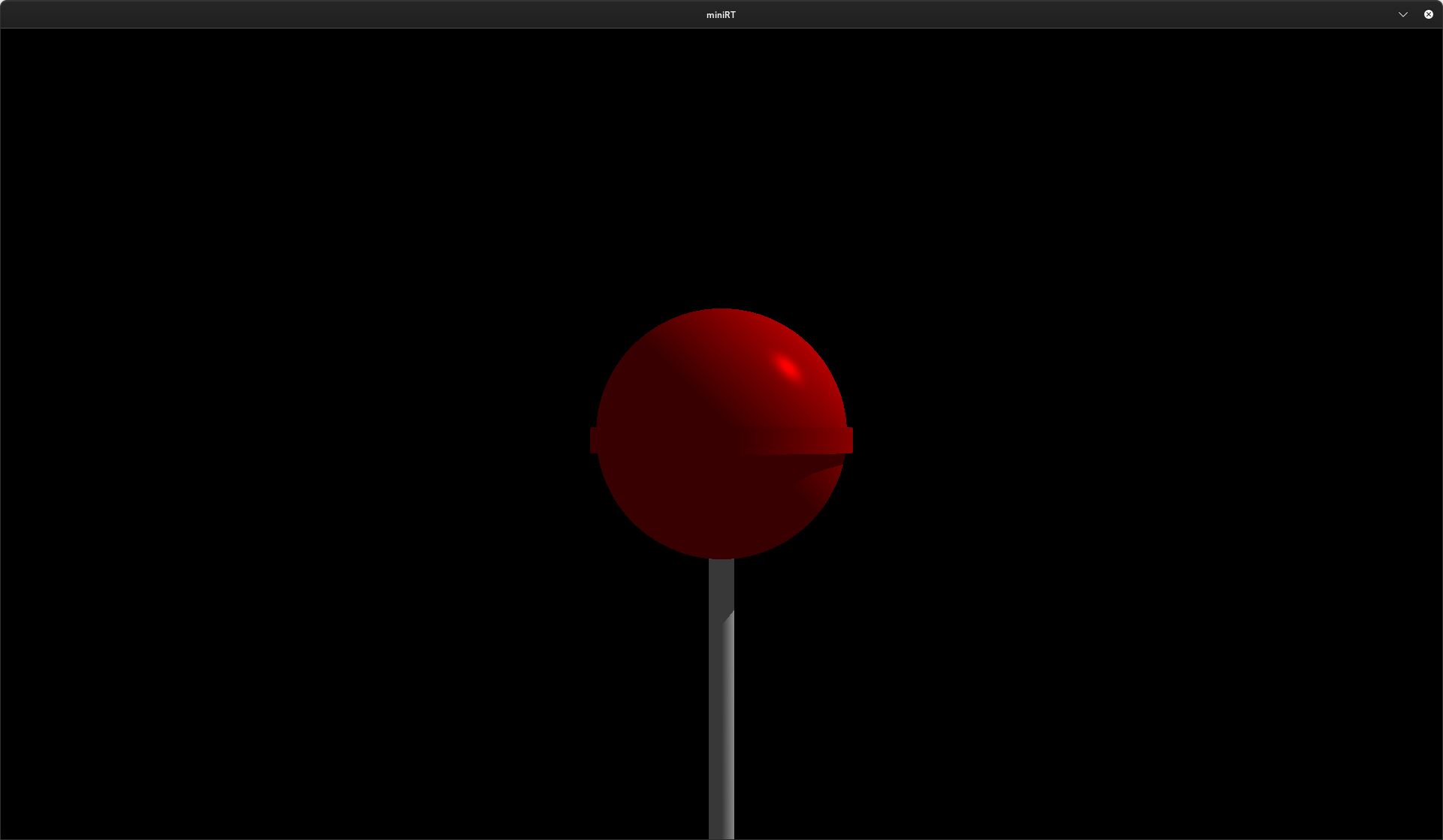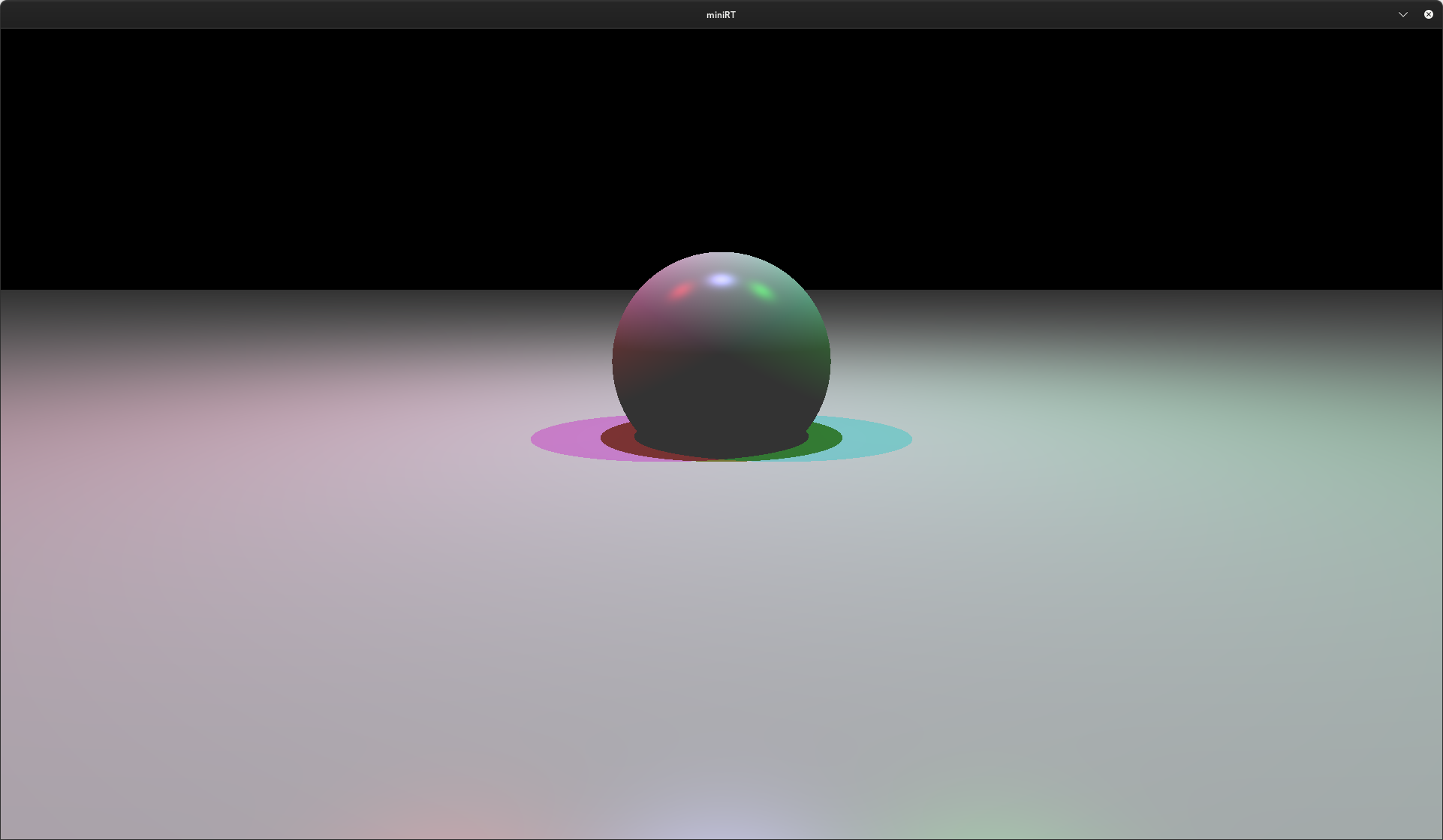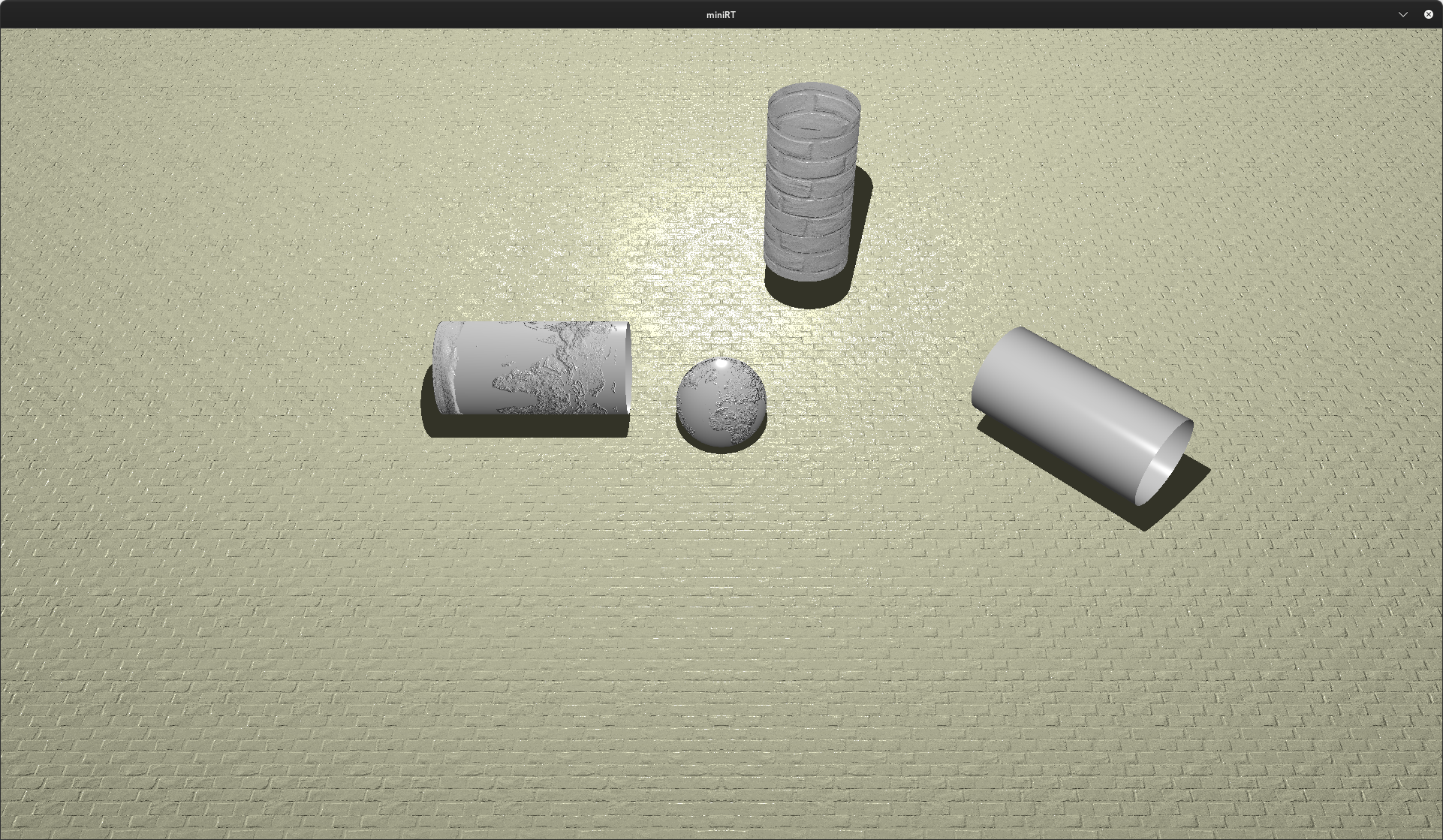MiniRT
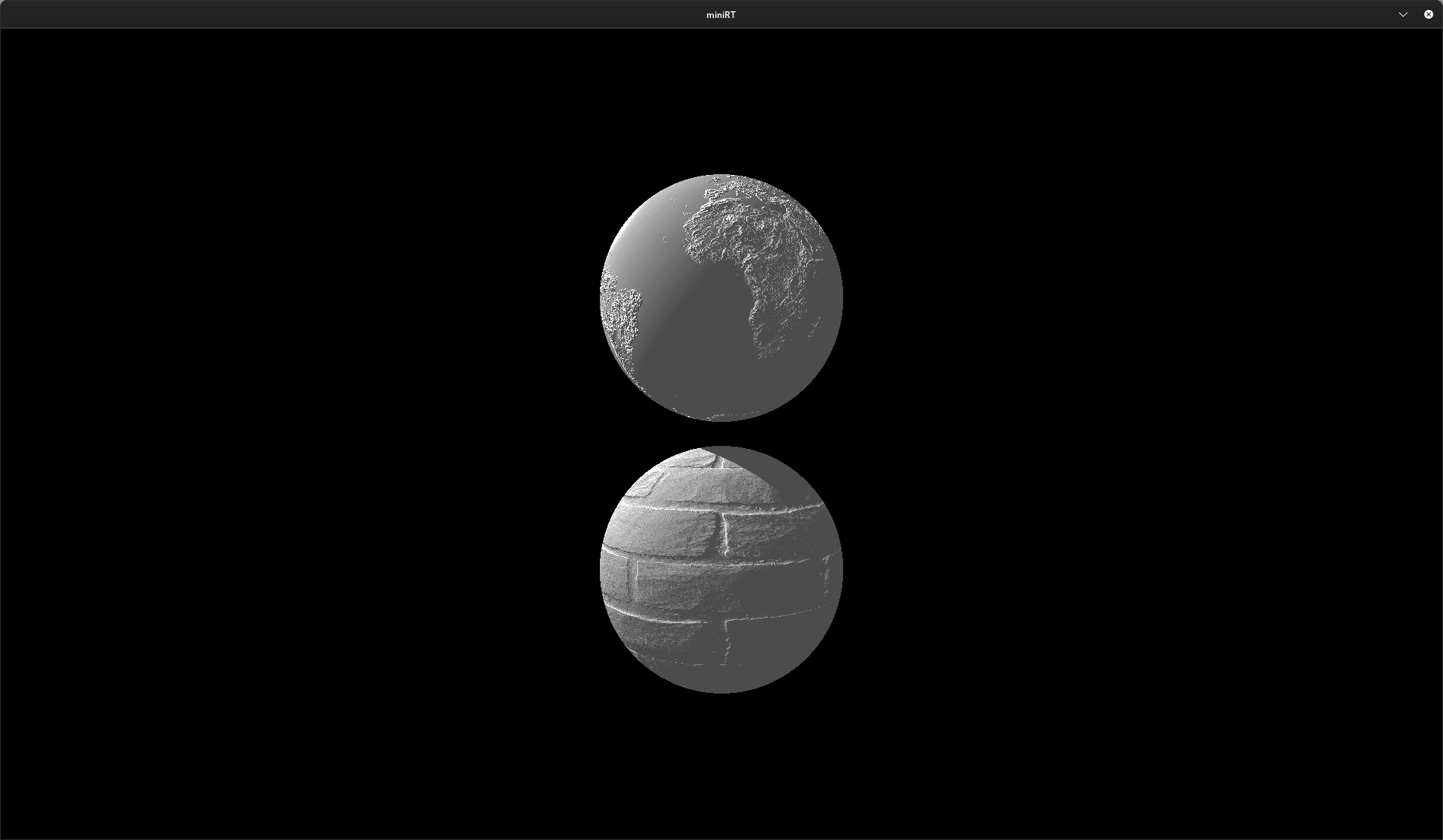
MiniRT: A Journey into Ray Tracing and Computer Graphics
Project Overview
MiniRT represents a sophisticated exploration of computer graphics through the implementation of a ray tracing rendering engine. Developed using the C programming language and miniLibX graphics library, this project provides a comprehensive introduction to the fundamental principles of 3D image generation.
Technical Foundation
Ray Tracing Methodology
Ray tracing is an advanced rendering technique that simulates the physical behavior of light, producing highly realistic computer-generated images. Unlike traditional rasterization methods, ray tracing traces the path of light rays as they interact with objects in a virtual scene, capturing complex visual phenomena such as reflections, shadows, and light interactions.
Key Technical Achievements
Rendering Capabilities
- Implemented rendering of multiple geometric primitives:
- Spheres
- Planes
- Cylinders
- Advanced lighting models with:
- Ambient lighting
- Diffuse illumination
- Shadow generation
- Precise scene configuration through .rt file format
Architectural Highlights
- Modular design supporting complex scene descriptions
- Efficient memory management
- Performance-optimized rendering algorithms
- Robust error handling for scene configurations
Implementation Details
Scene Configuration
The project supports a sophisticated scene description format, allowing precise control over:
- Camera positioning
- Light sources
- Geometric objects
- Color specifications
- Rendering parameters
Technical Challenges Addressed
- Geometric intersection calculations
- Light ray propagation
- Color and lighting computations
- Window and graphics management
Performance and Optimization
The ray tracing implementation balances computational complexity with rendering quality, demonstrating:
- Efficient algorithmic approaches
- Minimal memory overhead
- Smooth window interactions
- Flexible scene rendering
Advanced Features and Bonuses
Optional Enhancements
- Specular reflection
- Checkerboard color patterns
- Multi-spot lighting
- Texture mapping
- Advanced geometric objects
Technologies Utilized
- Programming Language: C
- Graphics Library: miniLibX
- Rendering Technique: Ray Tracing
- Mathematical Computation: Vector and Matrix Operations
Project Significance
MiniRT serves as a comprehensive introduction to:
- Computer graphics principles
- Rendering algorithms
- Low-level graphics programming
- Mathematical modeling in visual computing
GitHub Repository
Conclusion
This project exemplifies a methodical approach to implementing complex rendering techniques, transforming mathematical concepts into visually compelling computer-generated imagery.
